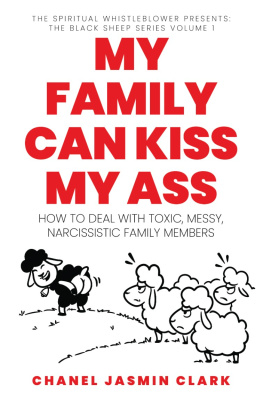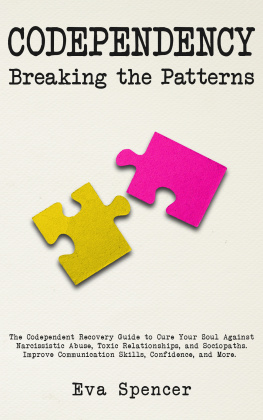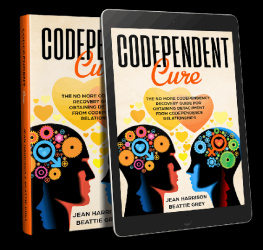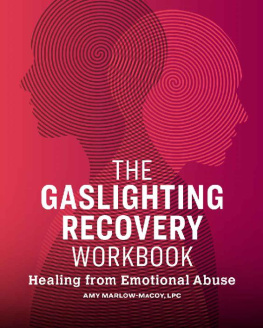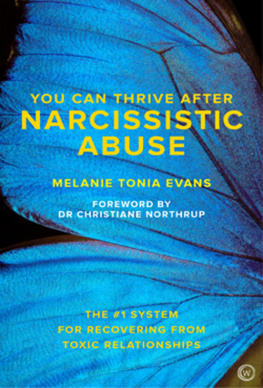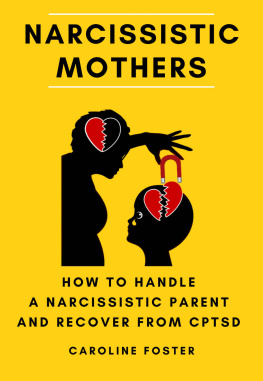GASLIGHTING
HOW TO RECOVER FROM NARCISSISTIC ABUSE AND TOXIC RELATIONSHIPS
By
Diletta Chan, MD
Copyright 2020 by Diletta Chan
All rights reserve d .
This document is geared towards providing exact and reliable information with regards to the topic and issue covered. The publication is sold with the idea that the publisher is not required to render accounting, officially permitted, or otherwise, qualified services. If advice is necessary, legal or professional, a practiced individual in the profession should be ordered.
From a Declaration of Principles which was accepted and approved equally by a Committee of the American Bar Association and a Committee of Publishers and Associations.
In no way is it legal to reproduce, duplicate, or transmit any part of this document in either electronic means or in printed format. Recording of this publication is strictly prohibited and any storage of this document is not allowed unless with written permission from the publisher. All rights reserved.
The information provided herein is stated to be truthful and consistent, in that any liability, in terms of inattention or otherwise, by any usage or abuse of any policies, processes, or directions contained within is the solitary and utter responsibility of the recipient reader. Under no circumstances will any legal responsibility or blame be held against the publisher for any reparation, damages, or monetary loss due to the information herein, either directly or indirectly.
Respective authors own all copyrights not held by the publisher.
The information herein is offered for informational purposes solely, and is universal as so. The presentation of the information is without contract or any type of guarantee assurance.
The trademarks that are used are without any consent, and the publication of the trademark is without permission or backing by the trademark owner. All trademarks and brands within this book are for clarifying purposes only and are the owned by the owners themselves, not affiliated with this document.
Table of Contents
INTRODUCTION
There is no denying that being in an abusive relationship with a narcissist is a traumatic experience. Narcissistic abuse and gaslighting are incredibly irritating and are often a traumatizing type of psychological abuse. In simple terms, a 'trauma' is an experience, whether it is a one-off occurrence, a sequence of events, an ongoing circumstance, or a relationship, that fundamentally undermines your sense of safety or security. Experiencing a combination of the two is known as post-traumatic stress disorder or C-PTSD. Being with a narcissist (an active abuser or partner with emotionally dysfunctional or antisocial personality disorders) is extremely and chronically stressful, erratic, violent, neglectful. It often involves lies and betrayal, rejection and retribution.
With a narcissist, you rarely know where you stand, so it's difficult to feel comfortable and confident in the relationship. Without the opportunity to feel safe in a healthy, comfortable, stable, or trustworthy relationship, the nervous system will never be able to calm and settle down. Instead, you find yourself living in a more or less constant state of heightened tension. You feel on the brink, jumpy, nervous, emotional, tearful, cranky, and more vulnerable stress and trauma. Living with unprocessed trauma can often be confusing, frightening, and that is paralyzing - and its also a factor that can keep people stuck in toxic relationships. This is typically what the people looking from the outside can't see or understand whenever they seem to say "quit the relationship and move on!" Some people have experienced years of a violent relationship. While they are well aware of the damage, they find themselves unable to end or exit those adverse circumstances. This can be painful and confusing in itself. In such situations, intelligence, facts and critical reasoning are often insufficient to contribute to positive change. If an unprocessed trauma is getting in the way of making the right decisions for yourself or getting in the way of keeping your sanity in check, please know that this is not your fault. It's very normal to be left confused as to why you should have the knowledge and even know and understand the violence, but still feel afraid, ashamed, forced or paralyzed, and powerless to do anything about it. Sometimes, after the relationship is over, you could feel stuck and have trouble moving on; this is also a problematic trauma symptom. After an abusive relationship, C-PTSD's challenges are not a result of the initiative, commitment, or character. It's complicated and it's a good idea to get skilled clinical support (A psychologist would be best).
In this book youll learn:
Different approaches to get over trauma effects that seem to affect a person completely
The impact of these traumas on a person in a relationship
The signs to look out for in a person that might indicate signs of narcissism
The reason behind narcissism and how to handle it
How the brain locks us in relationships with toxic people and how to deal with this issue
The book vividly explains how you can handle these relationships. More light is shed on how you can cope in different situations that you will definitely see coming.
CHAPTER ONE WHAT IS GASLIGHTING? DIFFERENT APPROACHES TO GET OVER THE EFFECTS OF TRAUMA THAT IS MEANT TO MEND BRAIN, MIND AND BODY
Let's get straight to the point; first, let's talk about gaslighting.
Gaslighting is a type of psychological manipulation where an individual or a group induces another person to doubt their sanity, sense of reality, or memory. People who encounter gaslighting sometimes feel disturbed, nervous, and unable to trust themselves. The word gaslight comes from the 1938 play and 1944 film, Gaslight, in which a husband manipulates his wife to believe that she has a mental disease by dimming their gas-fueled lights, convincing her that she is hallucinating. Some techniques for gaslighting include withholding, countering, diverting, denial, trivializing, and stereotyping. There are different types of gaslighting:
Medical gaslighting happens when a physician or other medical practitioner dismisses or trivializes a person's health problems under the basis that he or she is mentally ill. They can tell the person that their symptoms are "in their mind."
Racial gaslighting happens when people apply gaslighting tactics to a group of people based on race or ethnicity.
Child-parent gaslighting: Violent caregivers and parents can use gaslighting to shame or influence children. They may accuse them of being too emotional to belittle their emotions or accuse them of forgetting the events when they were younger.
Political gaslighting: it happens when a political person or organization uses deception, denial, or manipulates facts to influence citizens.
Institutional gaslighting: it can occur in a business or organization. The company can withhold or conceal records, lie to workers about their rights, or represent whistleblowers who find problems in a company incompetent or mentally ill.
Intimate partner gaslighting: An abusive partner can accuse the loved one of being crazy or psychotic. They will cage them emotionally, diminish their self-confidence, and make them easy to manipulate. For instance, they may keep reminding someone they're forgotten before the person begins to think it's real.
To fix the traumatic experience, first we need to cut off this kind of relationship.









